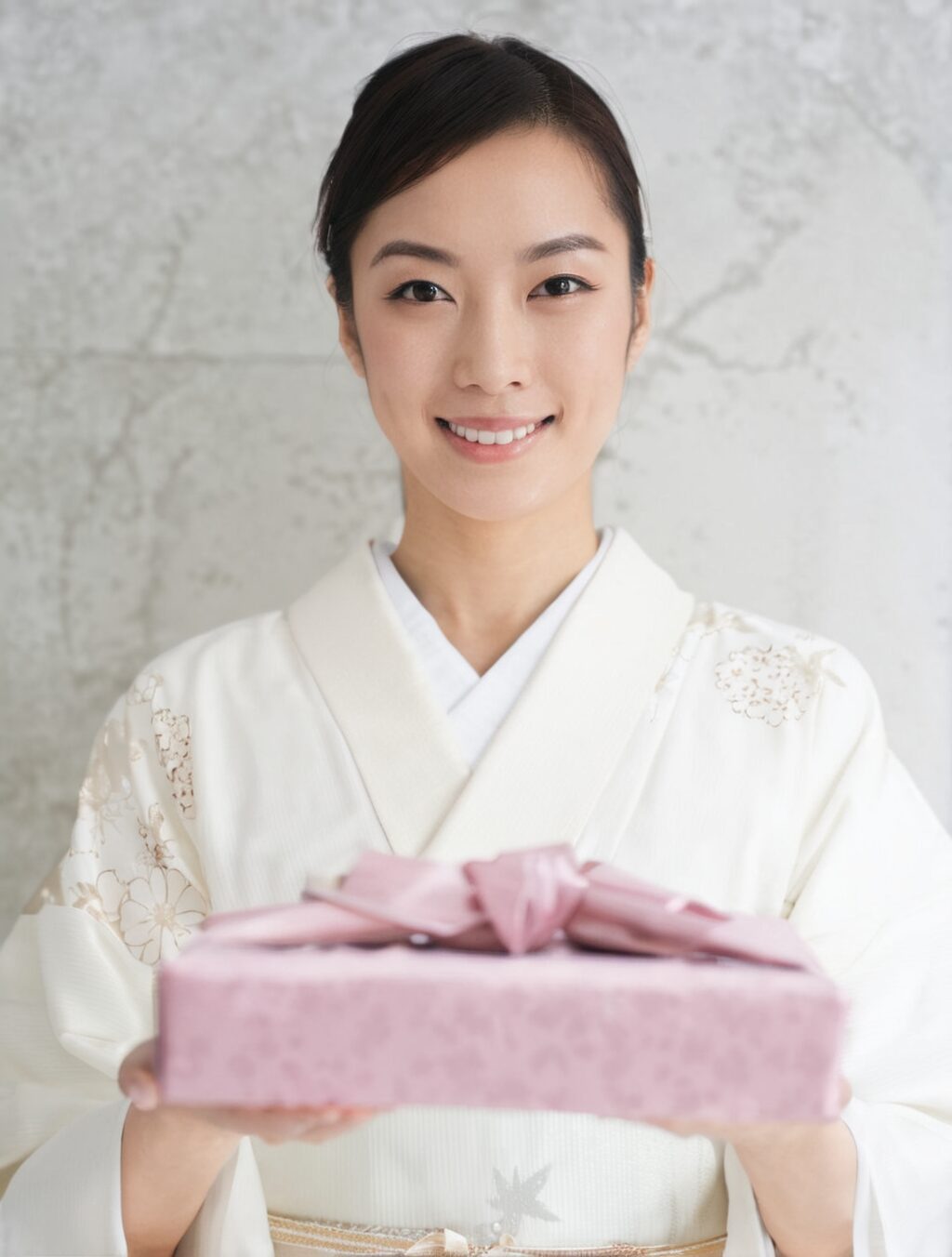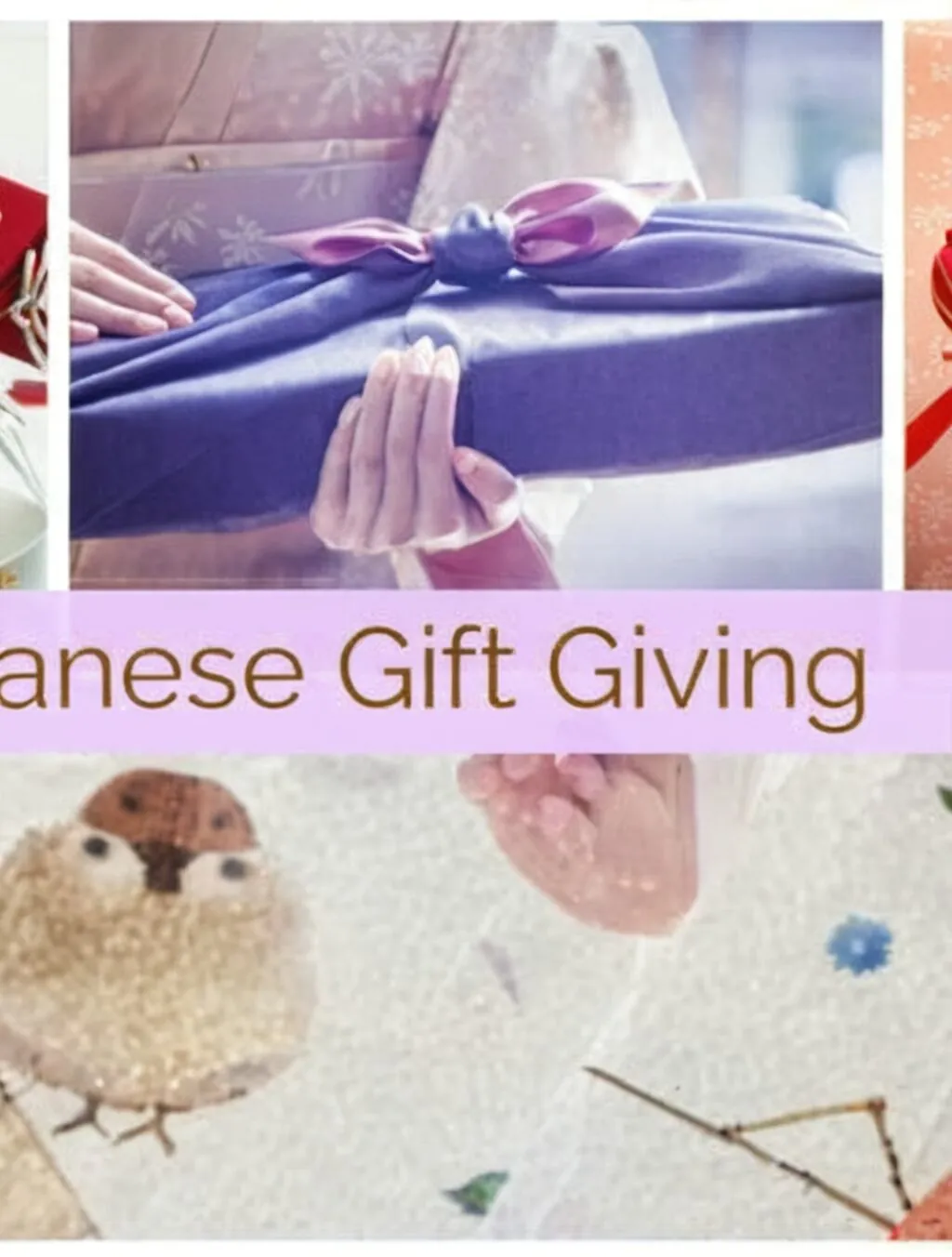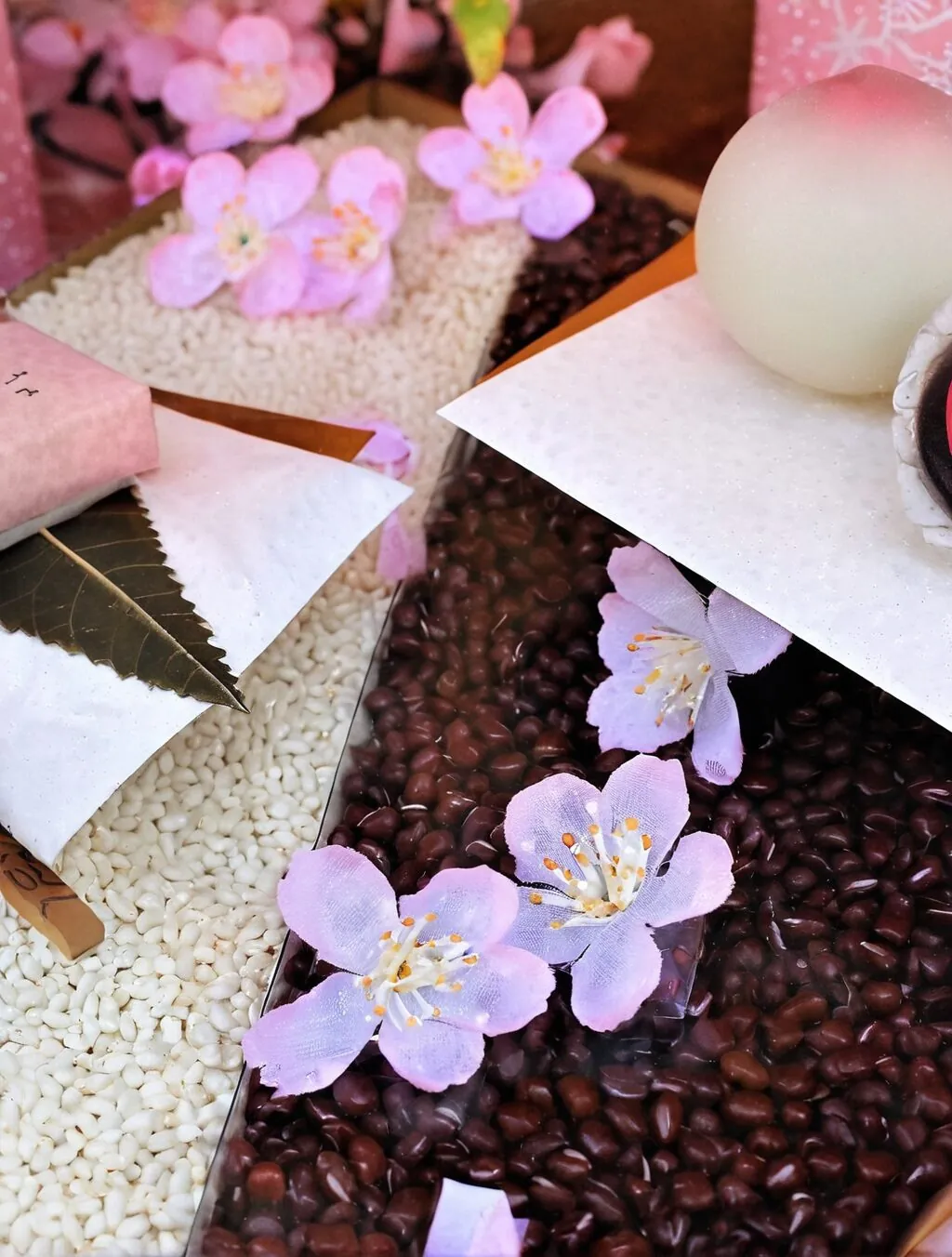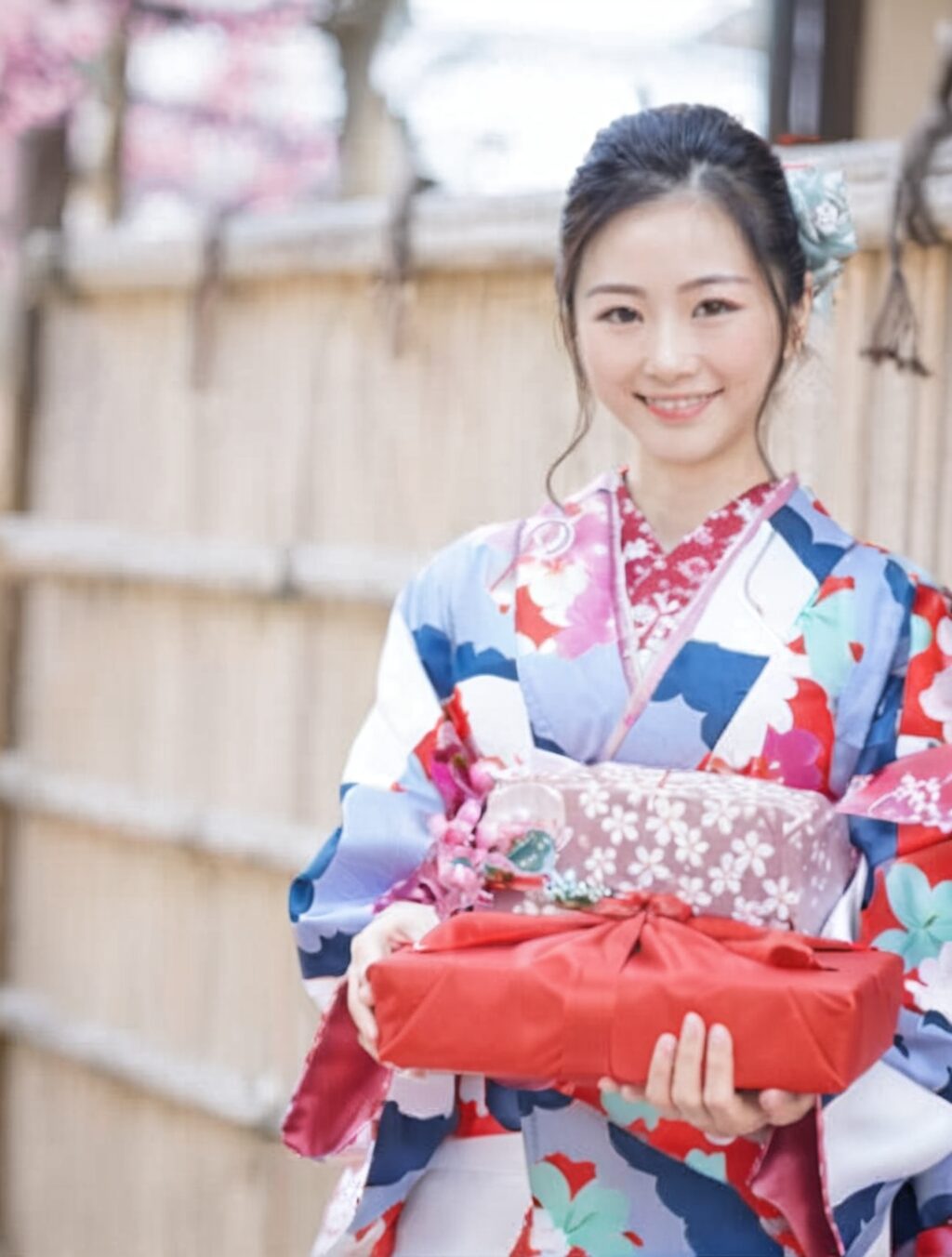Japanese Gift-Giving Customs: A Comprehensive Guide
Win a Free Trip to Japan!
Experience cherry blossoms and ancient temples
Delving into the intricate world of Japanese gift-giving unveils a rich tapestry of traditions, etiquette, and cultural nuances. Understanding these customs not only ensures a respectful and meaningful exchange but also deepens your appreciation for Japanese culture.
The Significance of Gift-Giving in Japan
Gift-giving in Japan transcends mere material exchange; it’s an act of social bonding, expressing gratitude, and maintaining relationships. Gifts are carefully selected to convey thoughtfulness and respect, making them a cherished part of Japanese culture.
Key Traditions and Etiquette
- Thoughtful Selection: Gifts should be chosen with the recipient’s preferences and needs in mind.
- Proper Presentation: Gifts are typically wrapped in decorative paper and tied with a ribbon (noshi).
- Exchange Protocol: Gifts are usually presented with both hands and a slight bow as a sign of respect.
- Avoid Inappropriate Gifts: Certain items, such as sharp objects or items with unlucky connotations, should be avoided.
Special Occasions for Gift-Giving
Japanese gift-giving practices vary depending on the occasion. Notable events include:
- Christmas: Small, thoughtful gifts are exchanged, often with a festive touch.
- O-chugen (Summer Gift): Gifts are sent in mid-July to express gratitude and maintain business relationships.
- O-seibo (Year-End Gift): Gifts are exchanged in mid-December as an expression of appreciation and well wishes.
FAQs
Q: What are some popular gift ideas in Japan?
A: Traditional Japanese items, such as teacups, fans, or furoshiki (wrapping cloths), are always appreciated.
Q: Is it rude to open a gift in front of the giver?
A: In some cases, it’s considered impolite to open a gift immediately. It’s best to wait until the giver has left.
Conclusion
Navigating the intricacies of Japanese gift-giving customs requires respect, thoughtfulness, and an appreciation for the cultural nuances involved. By adhering to these traditions, you not only honor Japanese etiquette but also forge deeper connections and demonstrate your understanding of this fascinating aspect of Japanese society.
japan gift giving business
The Art of Gift-Giving in Japan: Etiquette and Customs
In the realm of Japanese gift-giving etiquette, every gesture holds significance, reflecting the country’s deep-rooted traditions and values. Whether you’re navigating the nuances of business gift-giving or seeking to honor personal relationships, understanding these customs is paramount.
Key Principles of Japanese Gift-Giving Etiquette
- Thoughtful Selection: Gifts should be chosen with the recipient’s preferences and needs in mind, demonstrating your thoughtfulness and care.
- Appropriate Presentation: Gifts are typically wrapped in decorative paper and tied with a ribbon (noshi), which varies in design depending on the occasion.
- Humble Acceptance: When receiving a gift, it’s customary to express gratitude and humility, even if it’s something you may not use.
- Reciprocity: Gift-giving is often reciprocal, with the recipient feeling obligated to return the gesture at some point.
Business Gift-Giving Etiquette
In the realm of Japanese business gift-giving, etiquette takes on a slightly different dimension:
- Timing: Gifts are typically exchanged at the end of a meeting or after a successful business deal.
- Value: Gifts should be of moderate value, avoiding extravagance or ostentation.
- Symbolic Meaning: Consider gifts that symbolize good fortune, prosperity, or success in business.
Receiving Gifts in Japan
When receiving a gift in Japan, it’s essential to follow these customs:
- Express Gratitude: Thank the giver profusely, using polite phrases like “domo arigato gozaimasu.”
- Avoid Opening Immediately: It’s considered impolite to open a gift in front of the giver. Wait until they have left or a more private moment.
- Reciprocate Thoughtfully: If possible, return the gesture with a thoughtful gift of equal or slightly lesser value.
Conclusion
Understanding Japanese gift-giving etiquette is not merely about following a set of rules; it’s about honoring a cultural tradition that values thoughtfulness, respect, and reciprocity. By embracing these customs, you can navigate the complexities of Japanese gift-giving with grace and forge meaningful connections.
japan gift giving traditions
Japanese Gift-Giving: A Cultural Journey of Thoughtfulness and Etiquette
In the intricate tapestry of Japanese culture, gift-giving holds a profound significance, transcending mere material exchange and embodying a deep-rooted tradition of respect, gratitude, and social harmony. Understanding the nuances of Japanese gift-giving is essential for navigating this cultural landscape with grace and appreciation.
Defining Gift-Giving in Japan
Japanese gift-giving is not simply an act of giving; it’s a ritual steeped in symbolism and etiquette. Gifts are carefully selected to convey specific messages, express gratitude, and strengthen relationships. The choice of gift, its presentation, and the manner in which it’s given all carry cultural significance.
Japanese Business Gift-Giving
In the realm of Japanese business, gift-giving takes on a slightly different dimension. Gifts are often exchanged to build relationships, express appreciation, and maintain harmony. Understanding the following customs is crucial:
- Timing: Gifts are typically exchanged at the end of a meeting or after a successful business deal.
- Value: Gifts should be of moderate value, avoiding extravagance or ostentation.
- Symbolic Meaning: Consider gifts that symbolize good fortune, prosperity, or success in business.
Japanese Gift-Giving Culture
Beyond the business realm, gift-giving permeates various aspects of Japanese culture, including personal relationships, seasonal celebrations, and special occasions. Key cultural norms to be aware of include:
- Thoughtful Selection: Gifts are chosen with the recipient’s preferences and needs in mind, demonstrating the giver’s care and attention.
- Appropriate Presentation: Gifts are typically wrapped in decorative paper and tied with a ribbon (noshi), which varies in design depending on the occasion.
- Humble Acceptance: When receiving a gift, it’s customary to express gratitude and humility, even if it’s something you may not use.
Japanese Gift-Giving Protocol
Adhering to proper Japanese gift-giving protocol is essential for showing respect and avoiding any cultural faux pas:
- Use Both Hands: When presenting or receiving a gift, use both hands to convey respect.
- Bow Politely: Accompany the gift exchange with a slight bow to show gratitude or humility.
- Avoid Inappropriate Gifts: Certain items, such as sharp objects or items with unlucky connotations, should be avoided.
Conclusion
Navigating the intricacies of Japanese gift-giving requires an understanding of cultural norms, symbolism, and etiquette. By embracing these traditions, you can not only honor Japanese customs but also forge deeper connections and demonstrate your respect for this fascinating culture.
japan christmas gift giving
Navigating Gift-Giving Etiquette in Japanese Business
In the realm of Japanese business, gift-giving is an essential cultural practice that can significantly impact relationships and professional success. Understanding and adhering to proper gift-giving etiquette is crucial for building trust, fostering goodwill, and avoiding any cultural faux pas.
Key Principles of Japanese Business Gift-Giving Etiquette
- Thoughtful Selection: Choose gifts that are appropriate for the recipient’s position, preferences, and the occasion.
- Moderate Value: Gifts should be of moderate value, avoiding extravagance or ostentation.
- Symbolic Meaning: Consider gifts that symbolize good fortune, prosperity, or success in business.
- Appropriate Presentation: Gifts should be carefully wrapped in decorative paper and tied with a ribbon (noshi).
Timing and Context
The timing and context of gift-giving in Japanese business are equally important:
- Initial Meetings: Small gifts can be exchanged at initial meetings to build rapport and show appreciation.
- Business Deals: Gifts are often exchanged after successful business deals to express gratitude and strengthen the relationship.
- Special Occasions: Gifts may also be given during special occasions, such as company anniversaries or employee milestones.
Receiving Gifts Gracefully
When receiving a gift in a Japanese business setting, it’s essential to follow proper etiquette:
- Express Gratitude: Thank the giver profusely, using polite phrases like “domo arigato gozaimasu.”
- Avoid Opening Immediately: It’s considered impolite to open a gift in front of the giver. Wait until they have left or a more private moment.
- Reciprocate Thoughtfully: If possible, return the gesture with a thoughtful gift of equal or slightly lesser value.
Appropriate Gift Ideas
Choosing the right gift can be challenging. Consider the following suggestions:
- Traditional Japanese Items: Tea sets, fans, or furoshiki (wrapping cloths) are always appreciated.
- Business-Related Gifts: Desk accessories, briefcases, or technology gadgets can be practical and well-received.
- Food and Beverages: High-quality chocolates, sake, or tea are popular gift options.
Conclusion
Mastering gift-giving etiquette in Japanese business requires cultural sensitivity and attention to detail. By adhering to these principles, you can navigate this important aspect of Japanese business culture with confidence and grace, building stronger relationships and enhancing your professional success.



